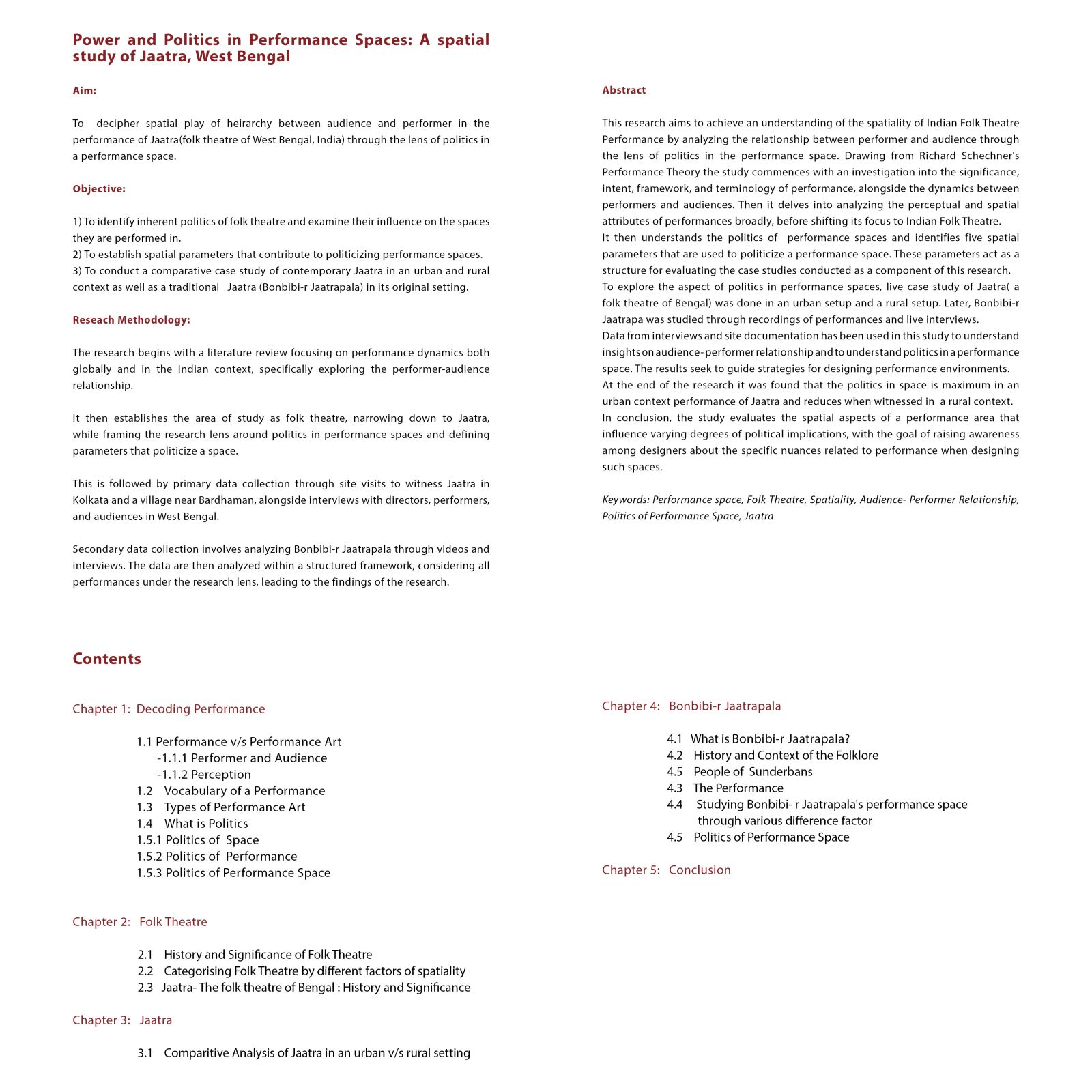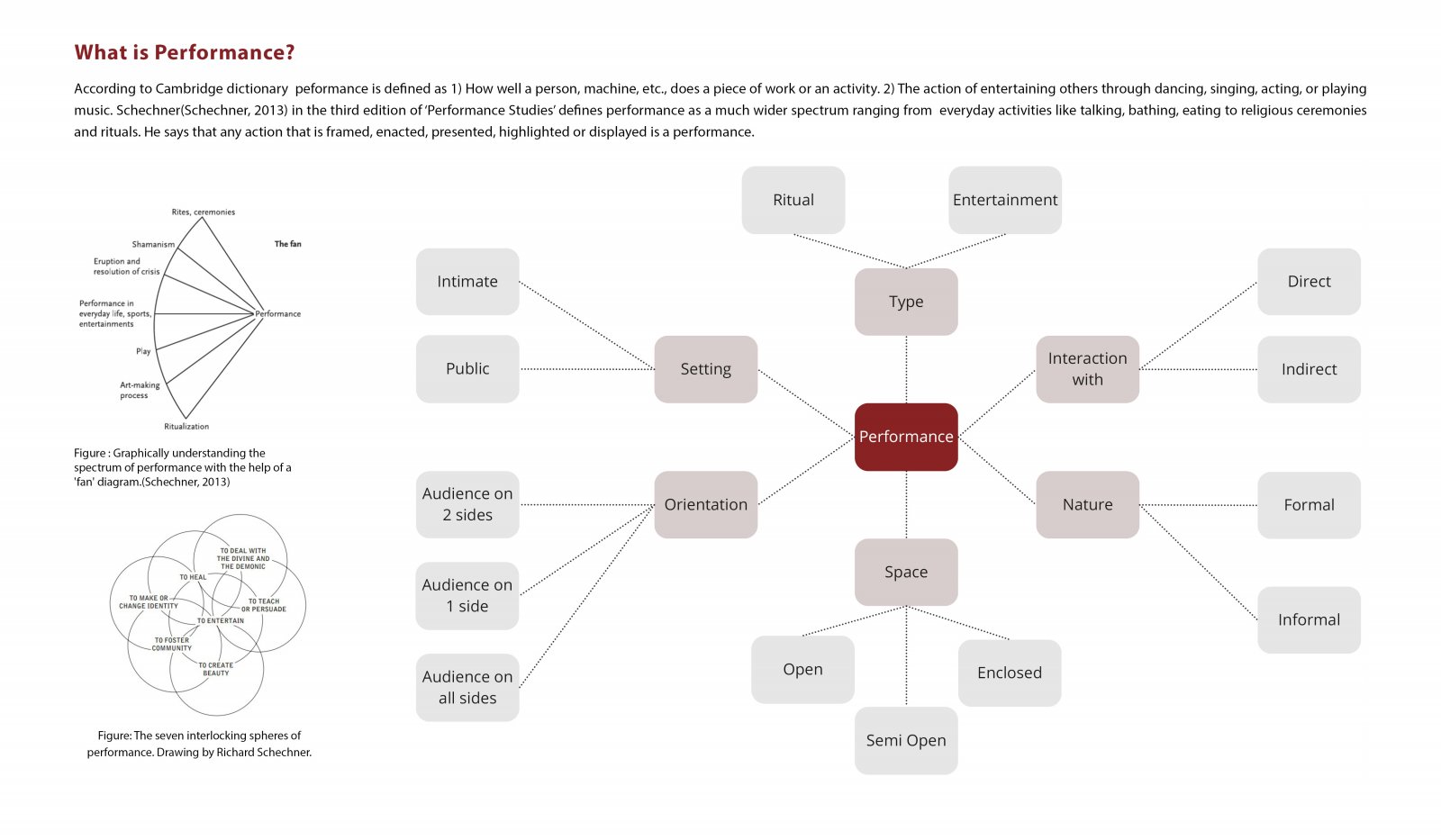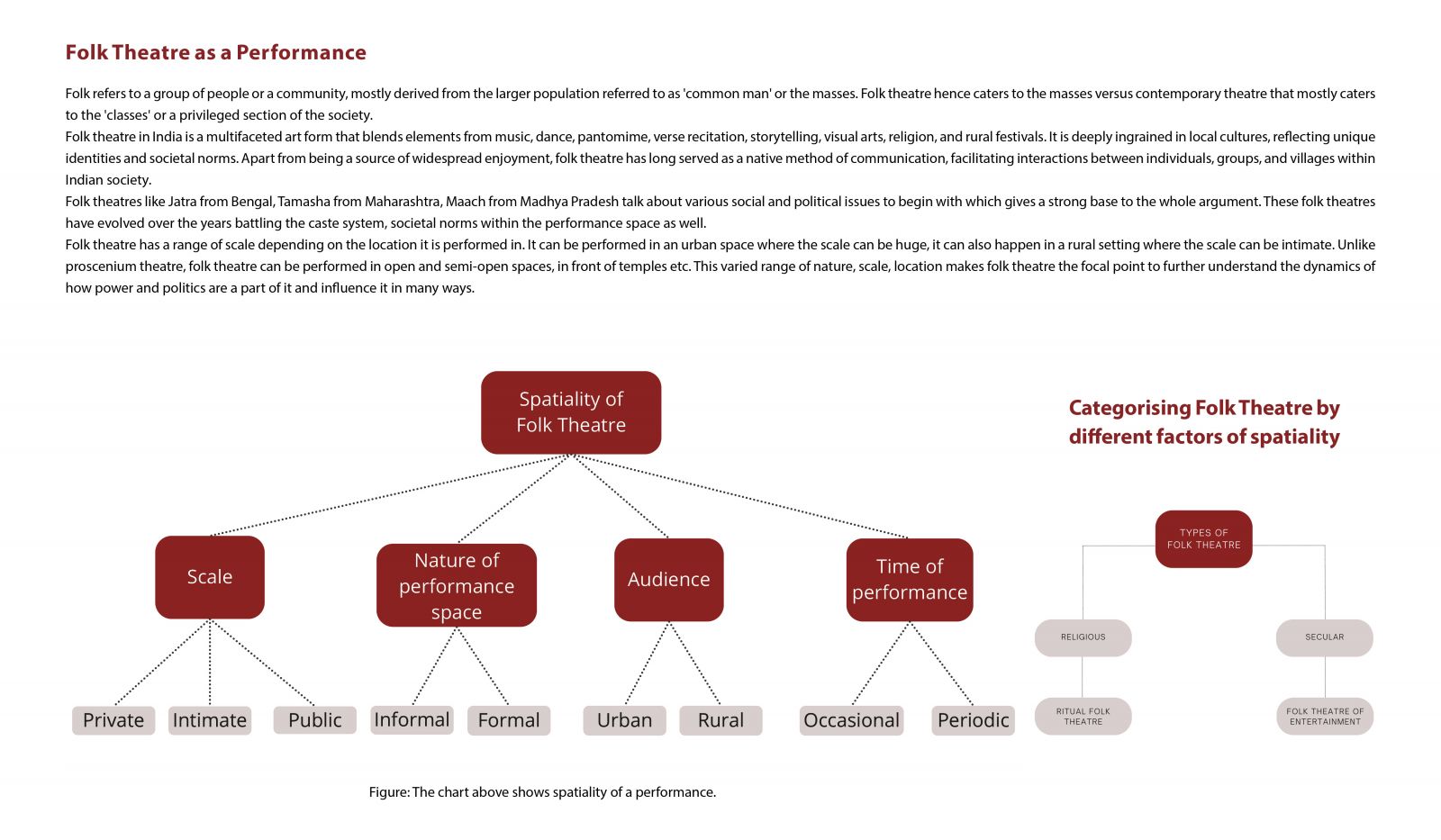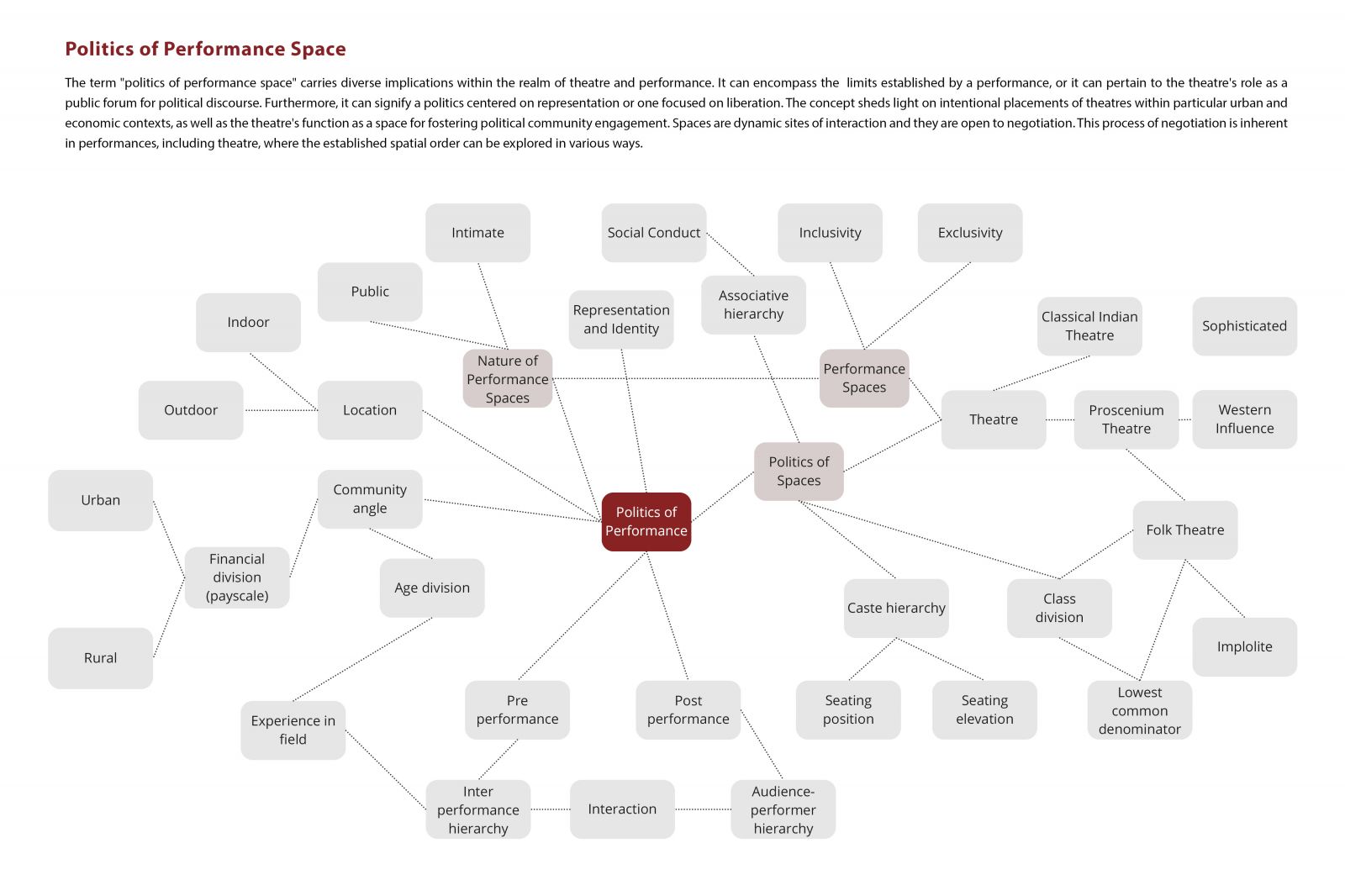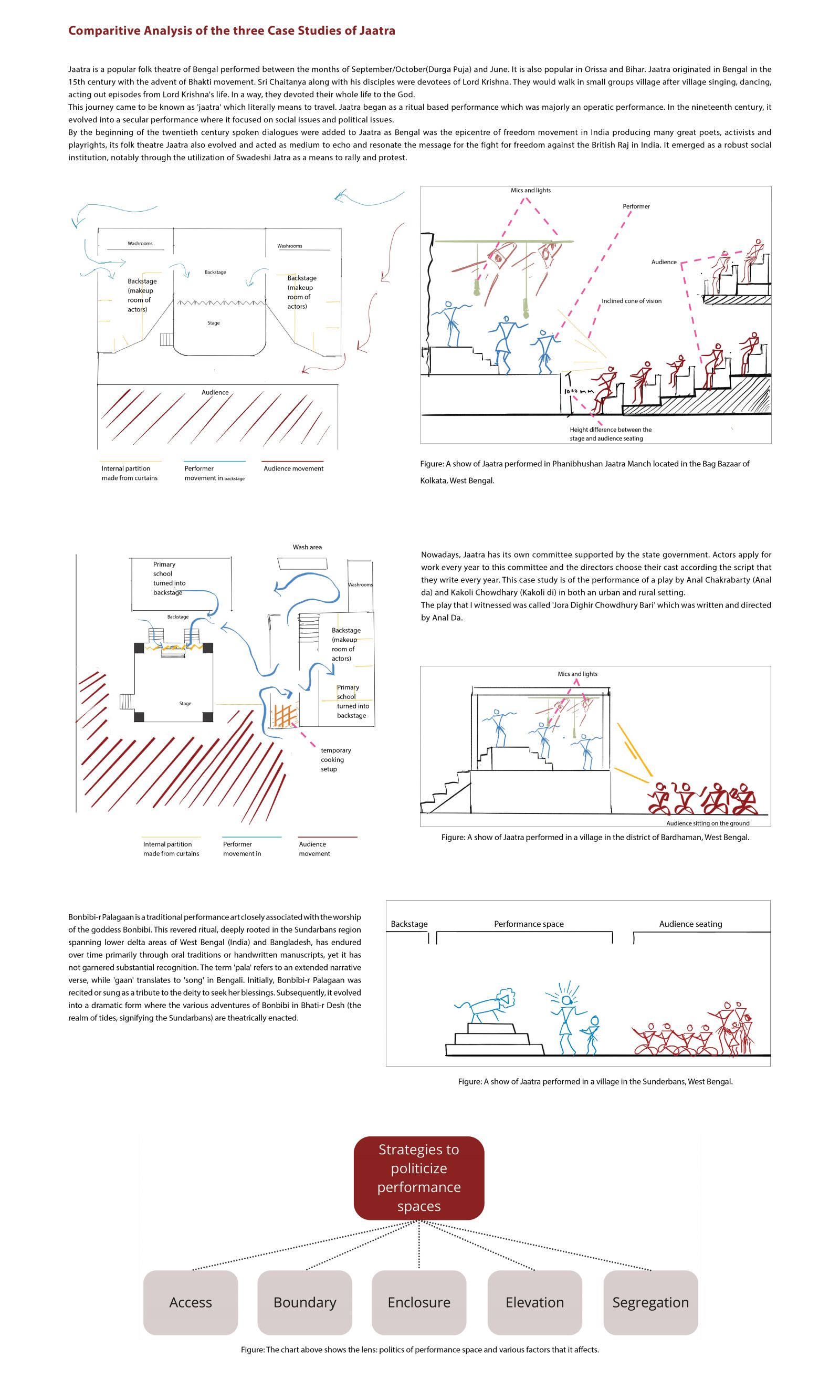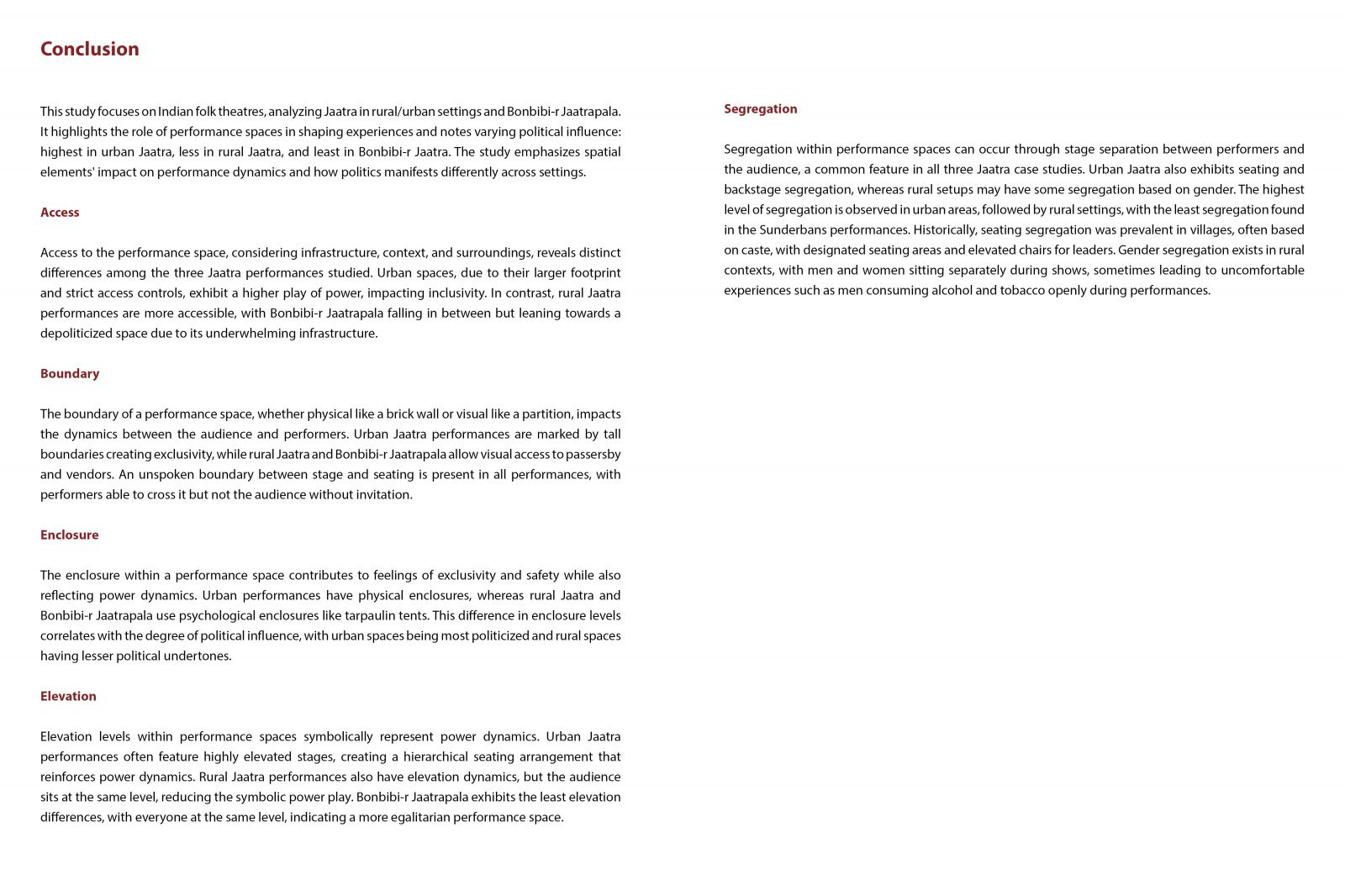Your browser is out-of-date!
For a richer surfing experience on our website, please update your browser. Update my browser now!
For a richer surfing experience on our website, please update your browser. Update my browser now!
This research aims to achieve an understanding of the spatiality of Indian Folk Theatre Performance by analyzing the relationship between performer and audience through the lens of politics in the performance space. Drawing from Richard Schechner's Performance Theory the study commences with an investigation into the significance, intent, framework, and terminology of performance, alongside the dynamics between performers and audiences. Then it delves into analyzing the perceptual and spatial attributes of performances broadly, before shifting its focus to Indian Folk Theatre. It then understands the politics of performance spaces and identifies five spatial parameters that are used to politicize a performance space. These parameters act as a structure for evaluating the case studies conducted as a component of this research. To explore the aspect of politics in performance spaces, live case study of Jaatra( a folk theatre of Bengal) was done in an urban setup and a rural setup. Later, Bonbibi-r Jaatrapa was studied through recordings of performances and live interviews. Data from interviews and site documentation has been used in this study to understand insights on audience- performer relationship and to understand politics in a performance space. The results seek to guide strategies for designing performance environments. At the end of the research it was found that the politics in space is maximum in an urban context performance of Jaatra and reduces when witnessed in a rural context. In conclusion, the study evaluates the spatial aspects of a performance area that influence varying degrees of political implications, with the goal of raising awareness among designers about the specific nuances related to performance when designing such spaces.
